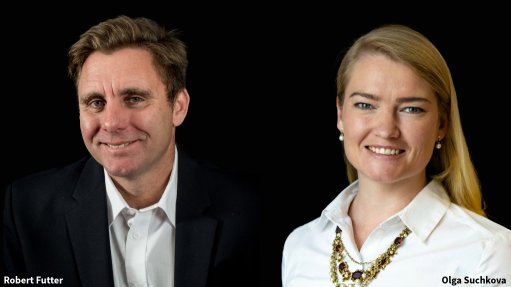Challenges and opportunities abound in the power utilities sector in 2023
This article has been supplied.
By Godfrey Marema, Plant Manager and Managing Director from Eaton South Africa
Turbulent 2022 will live long in the memory for those of us who work in the power utilities sector. Loadshedding dominated local headlines, adding fresh impetus to the drive to bring more renewables into the system.
Energy transition has been high on the agenda for some time and momentum towards new patterns of energy generation will increase in 2023. Challenges and opportunities abound, and these are the trends that I believe will shape the year ahead:
Loadshedding continues
Eskom has already warned South Africans that 2023 is set to come with intensified loadshedding as more of the national network suffers breakdowns and new plants struggle to fully come online due to construction delays and design flaws.
Pressure will be on government to deregulate the industry and allow for more private producers, including consumers themselves. Those traditionally described as ‘behind the meter’ – the households, businesses and industries that consume energy – are increasingly stepping ‘in front of the meter’ to generate some of their own energy from assets such as solar panels, as well as manage their own supply and demand with energy storage systems.
Known as prosumers, because they produce and consume energy, their increasing involvement in energy markets is recognised as the likely way forward in an energy sector that must back away from heavy dependence on fossil fuels to mitigate climate change.
For national economies, domestically generated energy, even in small packets, reduces reliance on imports thus boosting energy security too.
The attractions are evident, but decentralisation presents challenges to the utilities sector that centre on how to balance the variable energy inflow from prosumers and commercial renewables while maintaining steady supply, particularly at times of peak demand on the grid. What is not in doubt is that decentralisation will be a growing trend in 2023 locally and abroad.
Digitalisation
A subsidiary of S&P Global Market Intelligence called 451 Research, concluded from international research that the utility sector is at a critical transition point. It is challenged with keeping existing grid and service levels in place, despite increasing demands and ageing legacy infrastructure, while facing the need to change service models and apply data insights to optimise operations.
Supporting the acceleration of new additions to South Africa’s energy mix will be achieved through the adoption of digital technologies that increase and optimise available energy. Energy storage opportunities will flourish and abound considering these developments.
Digitalisation can be seen by utilities either as a key to success, or as competitor to what they regard as more pressing challenges. The pressure to choose will be greater than ever in 2023 and beyond.
Green energy is still the key solution
The abundance of natural renewable energy in South Africa has massive untapped potential. For large South African companies in industries like mining and heavy industry, generating their own power from renewable sources such as solar and wind is more than just about protecting the environment. These new sources are critical in managing fast-rising electricity costs, as well as ensuring stability of supply while the state utility, Eskom, repairs its ageing and ailing infrastructure. Alternative power sources, like green hydrogen will also see greater emphasis as continued research unlocks the plentiful resource of water through electrolysis.
Ending the use of SF6 switchgear
It is important to note that while the intended move away from coal-fired power generation is very positive, the choice of materials used in electrical systems for new power stations, especially those containing harmful gasses, could also have a negative effect on the environment.
The EU, and other European countries including the UK, are set to ban the use of global warming SF6 gas in medium voltage switchgear from the mid-2020s. Utilities, together with the many other sectors that use this type of switchgear, will need to select alternatives for future projects.
In South Africa, large data centres, some utilities and several shopping centres have already implemented SF6-free switchgear. The country’s greenhouse gas emissions are among the highest in the world and SF6 gas in electrical switchgear is still widely use, as it provides high-voltage insulation, but is linked to a rise in Sulphur Hexafluoride emissions.
As a decentralised high renewable grid will require more frequent switching, the global switchgear market for new switchgear, as well as replacements, is growing. Fortunately, SF6-free medium voltage switchgear technology is mature, and widely available in South Africa in the range up to and including 24kV. This should make the decision to go SF6-free an easy one to make in 2023, and the years to follow. A more sustainable future will benefit us all.
Comments
Press Office
Announcements
What's On
Subscribe to improve your user experience...
Option 1 (equivalent of R125 a month):
Receive a weekly copy of Creamer Media's Engineering News & Mining Weekly magazine
(print copy for those in South Africa and e-magazine for those outside of South Africa)
Receive daily email newsletters
Access to full search results
Access archive of magazine back copies
Access to Projects in Progress
Access to ONE Research Report of your choice in PDF format
Option 2 (equivalent of R375 a month):
All benefits from Option 1
PLUS
Access to Creamer Media's Research Channel Africa for ALL Research Reports, in PDF format, on various industrial and mining sectors
including Electricity; Water; Energy Transition; Hydrogen; Roads, Rail and Ports; Coal; Gold; Platinum; Battery Metals; etc.
Already a subscriber?
Forgotten your password?
Receive weekly copy of Creamer Media's Engineering News & Mining Weekly magazine (print copy for those in South Africa and e-magazine for those outside of South Africa)
➕
Recieve daily email newsletters
➕
Access to full search results
➕
Access archive of magazine back copies
➕
Access to Projects in Progress
➕
Access to ONE Research Report of your choice in PDF format
RESEARCH CHANNEL AFRICA
R4500 (equivalent of R375 a month)
SUBSCRIBEAll benefits from Option 1
➕
Access to Creamer Media's Research Channel Africa for ALL Research Reports on various industrial and mining sectors, in PDF format, including on:
Electricity
➕
Water
➕
Energy Transition
➕
Hydrogen
➕
Roads, Rail and Ports
➕
Coal
➕
Gold
➕
Platinum
➕
Battery Metals
➕
etc.
Receive all benefits from Option 1 or Option 2 delivered to numerous people at your company
➕
Multiple User names and Passwords for simultaneous log-ins
➕
Intranet integration access to all in your organisation



















